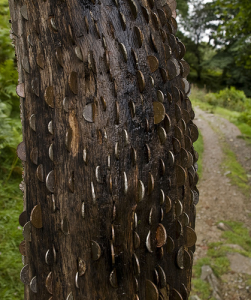Taking first steps in online trading
This Post was Originally published at Taking first steps in online trading on Start Investing Money
If you’re lucky enough to have generated some spare cash that is sitting in a savings account, you know that the money you have in that account is never going to make a huge difference to your life. The problem is that with the low interest rates available today, your cash has no real chance of growing.
Many people are realising this, and trying to make wiser use of their savings, and one way that this is possible (though can’t be guaranteed) is through trading online. You might think that you don’t know anything about trading, even the basic principles, so why would you risk any of your hard-earned cash this way?
However, just because you don’t know about something doesn’t mean that you can’t learn and with the Tradefair spread betting provider, new account holders have the perfect opportunity to learn how the world of trading works, without putting their own money at risk. Tradefair is an online trading platform used by millions. It began as a spread betting platform, but now its users can trade in CFDs and to spot forex as well. And for people who are new to the world of investing, a demo account gives them the chance to try out the theory of trading without any real risk.
To get started with spread betting, it’s a good idea to understand the basic concept. A financial spread bet isn’t a live share, it’s a derivative. That means that traders can decide to take a position against a financial instrument’s value moving up or down in the market place.
A spread bettor doesn’t own the stock that they are placing a bet on. Instead, they are speculating whether the spread on the price of a particular stock will move in an upwards or downwards direction. This gives traders the possibility of making money whether a stock rises or falls in value.
When you place spread bets, you’re not limited to stocks and shares. Tradefair alone offers its users access to more than 3,000 markets and the financial instruments that can be used for spread betting include currencies (the world’s biggest market is the foreign currencies exchange), commodities such as rice, wheat, sugar, tea, gold, aluminium, iron ore, copper and petroleum.

Speculating on the price of copper could help build your nest-egg. Image by ahisgett
The basics of share trading are simple. Traders either ‘go long’ and buy shares in expectation that they will increase in value and can then be sold at a profit. Or, shares are sold on the expectation of a fall, or on the fall, of a share’s value in order to limit loss.
In a spread bet, the trader doesn’t fund the total cost of the number of shares, but instead provides either a deposit to the spread betting company which is then used as a ‘margin’ for their bet or a proof of funds in order to be given account credit, which again can be used as the ‘margin’.
The ‘margin’ means that a trader can ‘deal’ in a larger amount of shares than they could through buying or selling with a traditional stock broker. The risk involved is that the trader is going beyond their normal financial means. It’s always easier to spend money that you don’t have.
As you can see, if you are new to the world of trading, it can feel rather daunting, which is why having a spread betting demo account is such a good idea while you get to grips with the concept. Once you’ve run a demo account for a while and started to see some success (albeit simulated), you’ll be able to decide whether or not you’re ready to actually invest some of your own cash in spread betting and see if you can make it work for you for real.
SOURCE: Start Investing Money – Read entire story here.
